Our Communities
Nestled in the heart of Central Honduras, rural communities are renowned for their close-knit and traditional way of life. Many families depend on subsistence farming and small-scale agriculture to sustain their livelihoods. These vibrant communities typically comprise quaint villages or clusters, where homes are lovingly crafted from locally sourced materials like adobe or wood.
Though infrastructure such as roads, electricity, and running water may be limited or even absent in some areas, these communities are rich in cultural traditions and customs. Strong family bonds and a deep sense of community are integral to their identity. However, these communities also grapple with significant challenges, including restricted access to education and healthcare, underdeveloped infrastructure, and limited economic and market opportunities. Moreover, their vulnerability to natural disasters like hurricanes, floods, and landslides can have a profound impact on their homes and livelihoods.
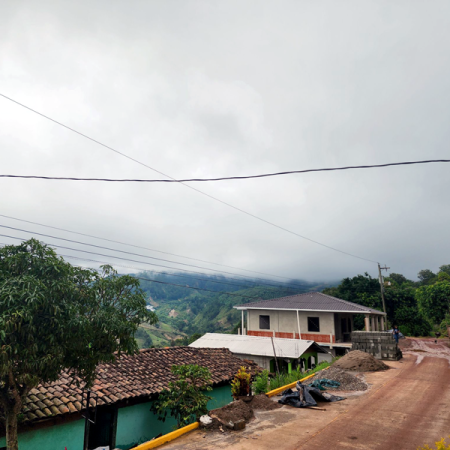
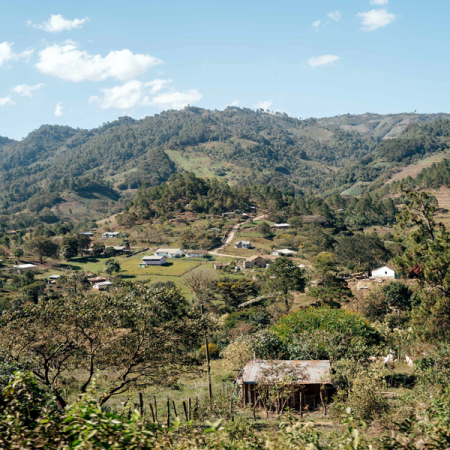
Las Lagunas
Situated on the gentle slopes east of Siguatepeque, Las Lagunas offers a captivating view of the Comayagua Valley. With elevations between 1,200 and 1,400 meters, the landscape features rocky terrain and lush fields. Bean and corn plots mingle with tomato and green pepper plants, while the higher slopes are home to shaded coffee plantations, showcasing the community’s agricultural expertise.
The lively concrete houses in Las Lagunas symbolize the farmers’ deep connection to the land and their strong family ties. These hardworking and enterprising individuals are committed to preserving the land’s beauty and fertility for future generations. In this welcoming community, the farmers of Las Lagunas display unwavering dedication to their agricultural traditions and the sustainable management of their abundant surroundings.
El Socorro de la Peñita
Northwest of Siguatepeque, El Socorro de la Peñita boasts south-facing slopes overlooking the Pan American Highway. With elevations between 1,300 and 1,600 meters, the area is characterized by its mountainous terrain, steep slopes, and high-altitude forests, creating an ideal setting for shade-grown coffee farms. The rich vegetation and tall trees form a natural canopy over the coffee plants, allowing for filtered sunlight and a diverse range of plant life. This microclimate contributes to the high quality and uniqueness of the coffee produced here.
Coffee farming in this community is often a family-run operation, with each member contributing to the cultivation and processing of the coffee. The handpicked coffee cherries highlight the community’s commitment to both quality and sustainability.
Basic services like running water and electricity may be limited or non-existent in some areas, and the roads and transportation systems can be poor. Many families may rely on walking or riding horses, donkeys or motorcycles to get to nearby towns or markets. Despite these challenges, there is a strong sense of community with close-knit families.
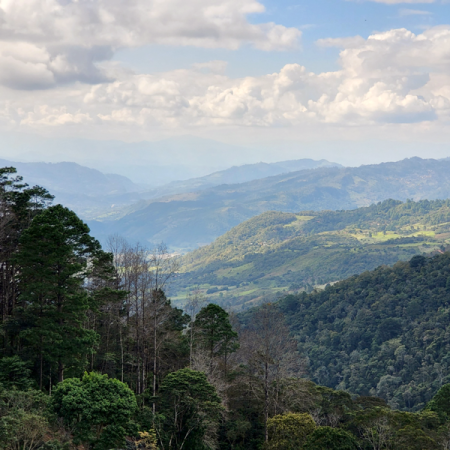
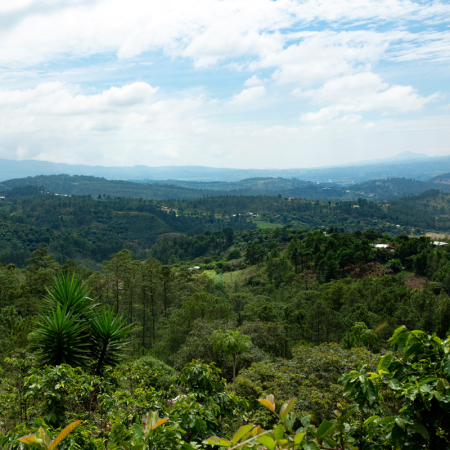
La Nueva Esperanza
Located south of Siguatepeque on the foothills of the Montecillos mountain range, La Cañada is found at elevations between 1,200 and 1,300 meters. This modest community overlooks the town of Siguatepeque and is just a short distance from the highway. Gentle slopes and pine forests make up the area’s landscape.
The houses in La Cañada are built using simple, locally-sourced materials like adobe and wood. In the surrounding land, families have small plots where they cultivate crops such as corn, beans, and coffee for personal consumption and sale in local markets. The region’s acidic soil limits the variety of crops that can be grown, but the community persists and makes the most of their available resources.
La Cañada showcases the essence of rural Honduran life, where diligent families work the land and tackle the challenges that come their way
Aguas del Padre
Aguas del Padre is situated west of Siguatepeque on the outskirts of the suburban area, with elevations ranging from 1,190 to 1,300 meters. As urban expansion from Siguatepeque has steadily encroached upon this community, the once predominantly rural area has experienced a blending of urban and rural lifestyles.
The terrain in Aguas del Padre is hilly, featuring some steep slopes. Scattered lots of corn and beans can be found throughout the area, while coffee farms begin to appear as the elevation increases. This community consists of many interconnected families that span multiple generations, with deep roots in the area.
In Aguas del Padre, most residents are vocationally farmers but also work in various institutions and industries, showcasing their adaptability and resilience in the face of change. The community’s blend of rural and urban influences creates a unique atmosphere where tradition and progress coexist.
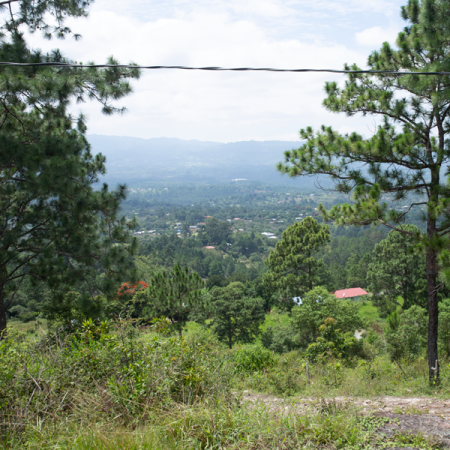
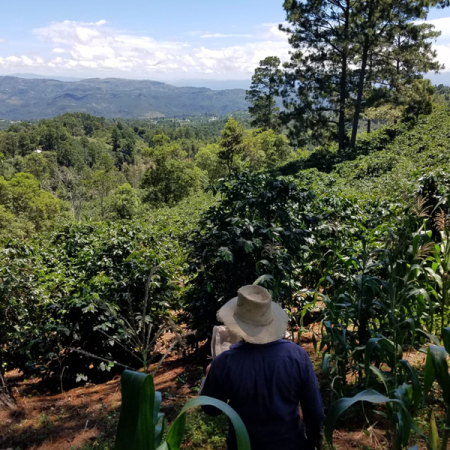
La Cayetana
With elevations between 1,300 and 1,400 meters, La Cayetana is situated south of Siguatepeque on the slopes of Montecillos. The community features a small cluster of homes made from locally sourced materials like adobe and wood. Basic infrastructure, such as roads, electricity, and running water, may be limited or non-existent in some areas.
The surrounding slopes are filled with vegetation, including coffee farms often shaded by plantains and local trees. Pine forests and high-elevation broadleaf forests contribute to the diverse scenery.
Families in La Cayetana are multigenerational and closely knit. Most residents are engaged in farming or related activities. This community’s connection to the land and each other fosters a sense of unity and resilience, as they face the challenges of their rural environment together.


